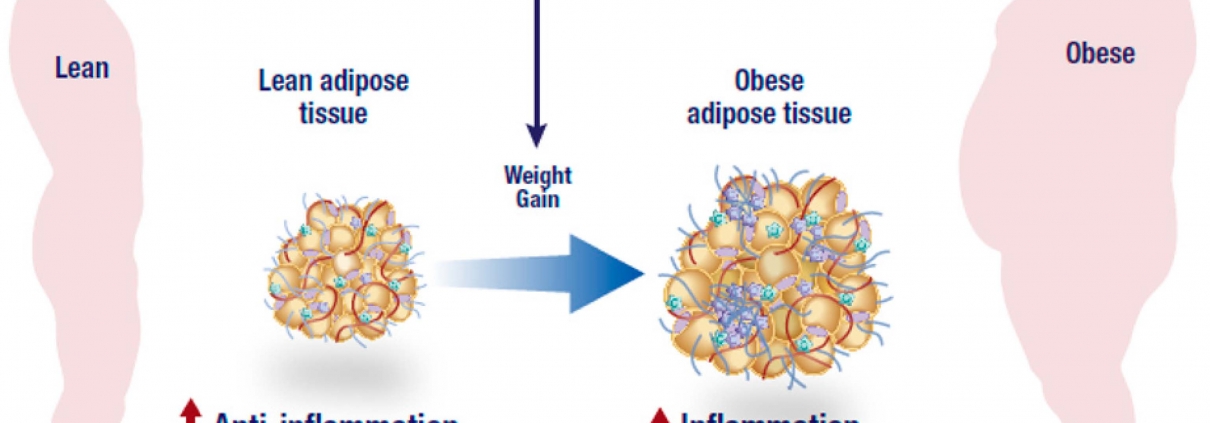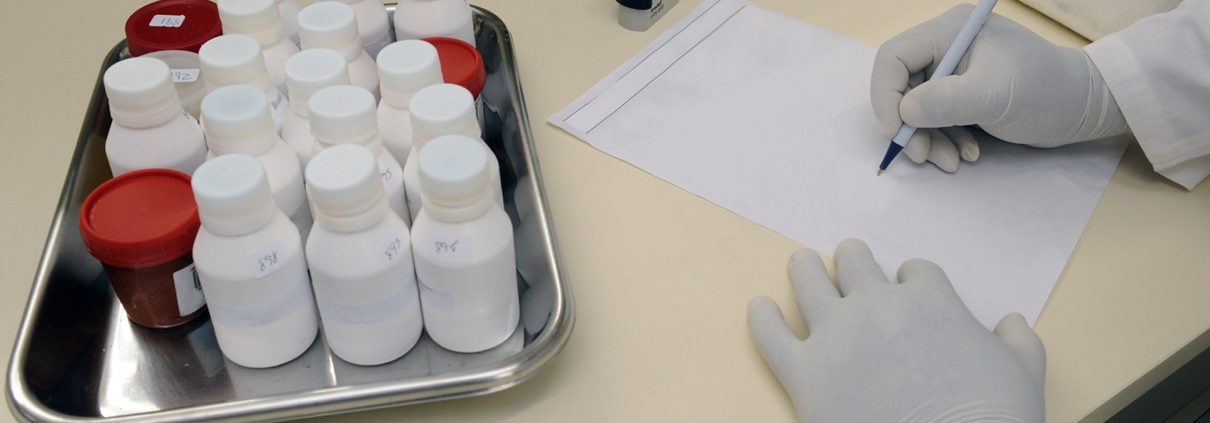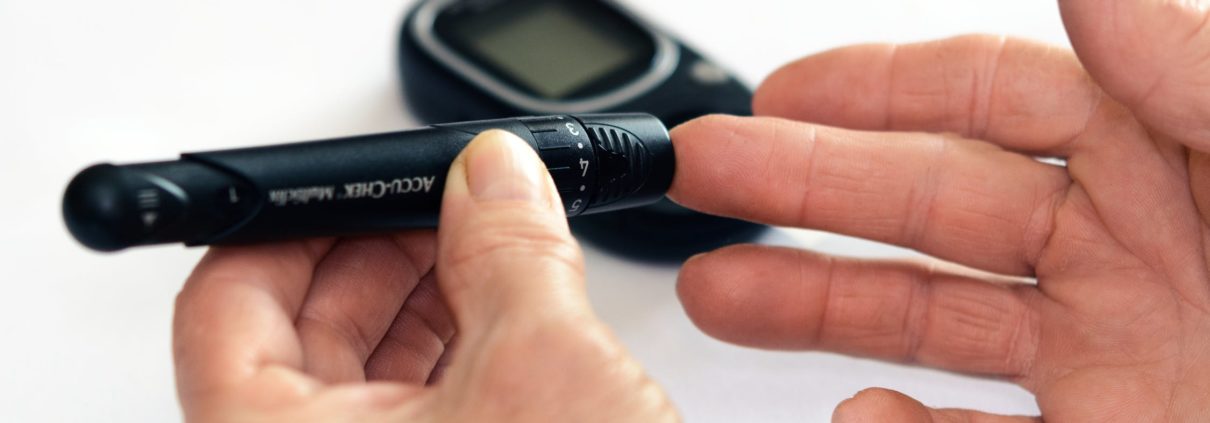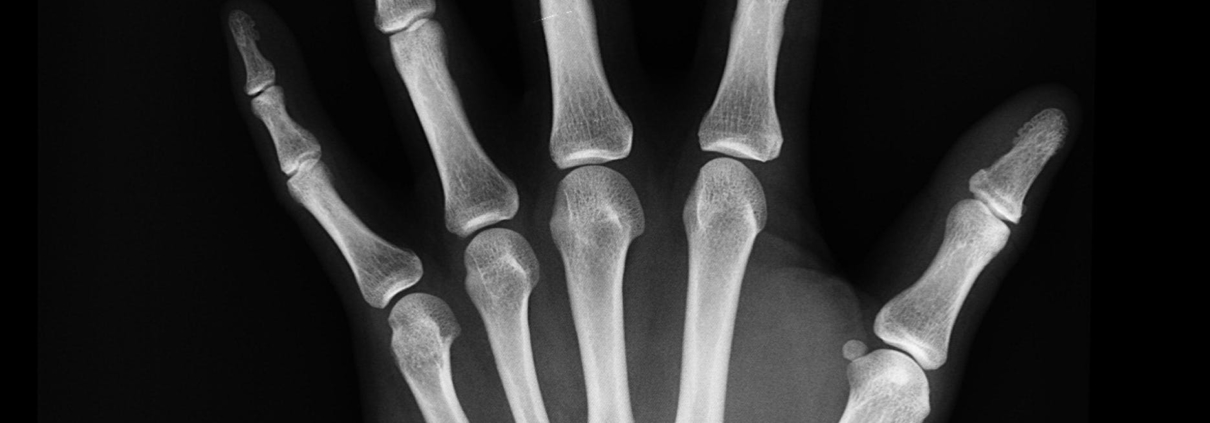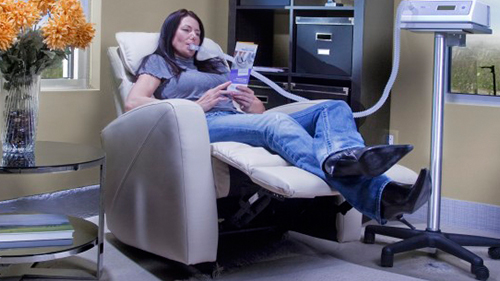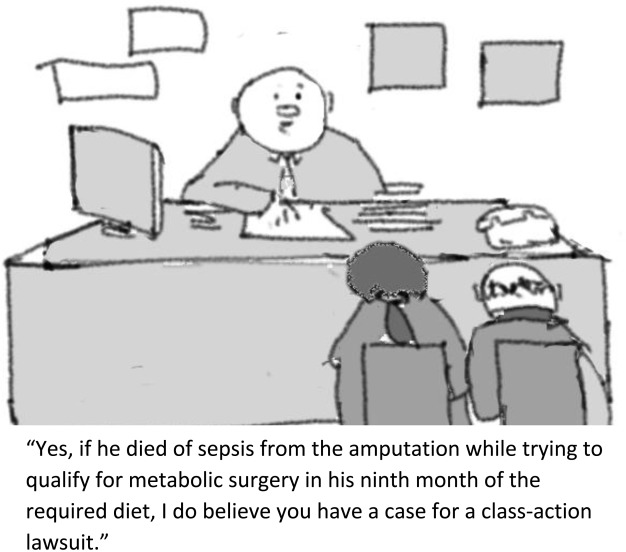The latest estimates from the American Society for Metabolic and Bariatric Surgery (ASMBS) show that in 2017, 228,000 Americans underwent bariatric surgery—a 44% increase in procedures since 2011. Sleeve gastrectomy leads the way as the most common procedure, and has overtaken Gastric bypass, as more patients embrace weight loss surgery. These statistics hold true in our practice, Advanced Laparoscopic Surgeons of Morris, LLC.
Although many outside the bariatric community may view this growth as explosive, we view it as sad and tragic, given the fact that in the big picture, less than 1% of people with severe obesity undergo bariatric surgery in any given year. According to a recent study in Annals of Surgery, utilization increased from 0.07% in 1993 to 0.62% in 2004, and to slightly lower than 0.5% in 2016.
The bariatric surgery utilization rate has barely budged despite a rise in severe obesity and an avalanche of data demonstrating it to be the most effective treatment with a complication rate comparable to laparoscopic gallbladder surgery and hysterectomy, and a mortality rate similar to total knee replacement.3 The question is, why? More importantly, what can be done about it?
Imagine if 99% of patients with diabetes, cancer, or heart disease did not seek or receive medical treatment because the barriers were too high. The outcry would be unimaginable. But somehow it is more acceptable to treat the devastating consequences of obesity rather than the disease of obesity itself.
Health professionals represent many different specialties, backgrounds, and perspectives, but they all treat the same disease. The good news is there is growing interest in working together to better help patients with obesity.
This has led to a more collaborative and systematic effort to tear down the barriers and create a more favorable environment for obesity care. But there are no easy or magic formulas to create the watershed moment that is needed to turn a 1% lifesaving procedure into standard practice.
Barriers to Care Fueled By Misunderstanding
The barriers to obesity treatment are interconnected: Misunderstanding, social stigma, and bias about obesity and bariatric surgery negatively affect insurance policies and benefit design, doctor–patient interactions, and public policy, and discourage patients from even exploring surgical treatment.
When people fail to recognize obesity as a chronic disease and health professionals fail to treat it as such, the stigma surrounding it endures and patients are left facing more obesity, diabetes, heart disease, stroke, sleep apnea, and cancer, as well as reduced quality of life and shorter life spans.
Public Stigma and Misperceptions Are Pervasive
According to a national survey commissioned by the ASMBS and NORC at the University of Chicago in 2016, while there is growing public concern about the dangers of obesity—81% said obesity is as serious as cancer—only 1 in 3 of those with obesity reported that they have ever spoken with a doctor about their weight. Additionally, only 12% with severe obesity said a doctor had ever suggested consideration of bariatric surgery.
While scientific research shows that diet and exercise alone are largely ineffective for treating obesity and severe obesity, the survey found that more than three-fourths of Americans (78%) believe individuals with the disease should have the willpower to lose weight on their own, noting that diet and exercise is the most effective method for long- term weight loss—more effective than bariatric surgery (60%) and prescription obesity drugs (25%). This belief contradicts the evidence. The annual probability of achieving even a 5% weight reduction without bariatric surgery was 1 in 8 for men and 1 in 7 for women with severe obesity.
Stigma Surrounds Obesity And Bariatric Surgery
One of the realities of living with obesity is that there’s not only stigma about having obesity, but there’s also stigma around needing help to treat it. A recent study in JAMA Surgery found almost half of the 948 respondents (49.4%) believed most people had bariatric surgery for cosmetic reasons, and nearly 40% thought that people who underwent bariatric surgery chose “the easy way out.”
It has been about 6 years since the American Medical Association officially recognized obesity as a disease, but its full impact is yet to be realized. In a survey of more than 3,000 adults with obesity, 65% recognized obesity as a disease; yet, 82% felt “completely” responsible for weight loss. What a disconnect! There is no other life- threatening disease of which patients feel completely responsible for their own treatment.
Insurance Coverage
Insurance coverage is the price of admission for surgery, and misunderstanding and stigma are literally written into the insurance policies of millions of Americans. Although most would agree that coverage has improved, real access remains challenging. Co-payments may be as high as 50% of the cost of the procedure. Small and medium-sized companies must select bariatric surgery as an option, and some carriers offer bariatric surgery as a “rider” available at substantially increased cost to the insured.
Real Progress Across All Barriers to Care
Education and advocacy backed by data are leading to good progress in all areas. According to the ASMBS, just this year, some insurers, including UnitedHealthCare, dropped its arbitrary 6-month preoperative dietary requirements, and others have reduced other hurdles or even expanded indications for bariatric surgery.
Plan of Action – Where Do We Go From Here?
Public and Professional Education And Awareness
We must continue our efforts to educate both public and health professionals about obesity and bariatric surgery. We know misconceptions and bias persist. The best weapons we have against that are data and you.
Do not wait for the referral. Make connections with local orthopedic surgeons, gynecologists, primary care providers, and other specialists. Familiarize them with national obesity guidelines and the key clinical evidence demonstrating the safety and effectiveness of bariatric surgery. Then tell them about your bariatric program, the experience of your multidisciplinary team, and share your specific patient outcomes.
Surgeons must improve educational efforts with other health care providers. They should encourage every medical practice to include the following question on intake forms for new patients: “Is it OK if we talk about your weight today?” If a patient answers yes, permission is granted to start a conversation that will help a patient get treatment. Most patients and doctors today avoid the subject.
Insurance Coverage and Access
We must continue our work with insurers and employers to have a uniform single benefit for the entire country. Work is being done to create a model benefit that could be adopted by insurers nationwide. This would enable payers and the country to reap the health and cost benefits of bariatric surgery no matter how long a patient remains with one insurance provider.
Advocacy and Public Policy
The ASMBS, medical societies, advocacy organizations, and industry leaders are working to shape federal, state, and local government policies; pro- mote the approval of safe and effective treatment options; improve funding for obesity research; expand patient access; and fight stigma wherever it exists.
It is important for all of us to challenge people and organizations around the barriers to care and help them understand whether their views or policies are based on bias or misinformation or actual evidence and good science. This has changed many a payer’s perceptions about obesity care.
We also must stop the spread of stigma in mass media and social media and counter inaccurate and hurtful portrayals of obesity and its treatment with greater humanity, sensitivity, and evidence-based messages. Each negative portrayal is an opportunity to educate.
A Call for a National Obesity Strategy and a Patient Bill of Rights
The moment is now for a national obesity strategy. We as a nation must change our thinking about obesity and begin to remove the policy, social, medical, discriminatory, economic, and perceptual barriers that deny people appropriate treatment and support. The state of America’s health and wealth is at stake. We cannot keep doing the same things fighting a losing war against the obesity epidemic and expect a different result.
Some new thinking is required including the creation of a patient bill of rights that would ensure access to care is not limited by a person’s size, weight, or economic status and a national obesity strategy that encompasses both prevention and treatment. This national initiative could be headed by a newly created obesity czar tasked by the federal government to bring the public and private sectors together on prevention and treatment strategies and policies that destigmatize the disease and do not unnecessarily deny, delay, or defer proven evidence-based treatments across the continuum of care.
In this environment, the most effective treatment for severe obesity will no longer be reserved for less than 1% of the patients who could benefit.
We at Advanced Laparoscopic Surgeons of Morris, LLC, are here to help, to get you started in reclaiming your life back, your health back! It is even more important now, during and after the COVID-19 epidemic, which showed that OBESITY is a MAJOR factory in mortality from the virus, in addition to age over 60, Diabetes, Coronary Artery Disease, Obstructive Sleep Apnea, Chronic Kidney Disease. Please call us (973) 410-9700, or email us at info@alsnj.com or visit us on the web at www.alsnj.com.
Alexander Abkin, MD, FACS, FASMBS.

